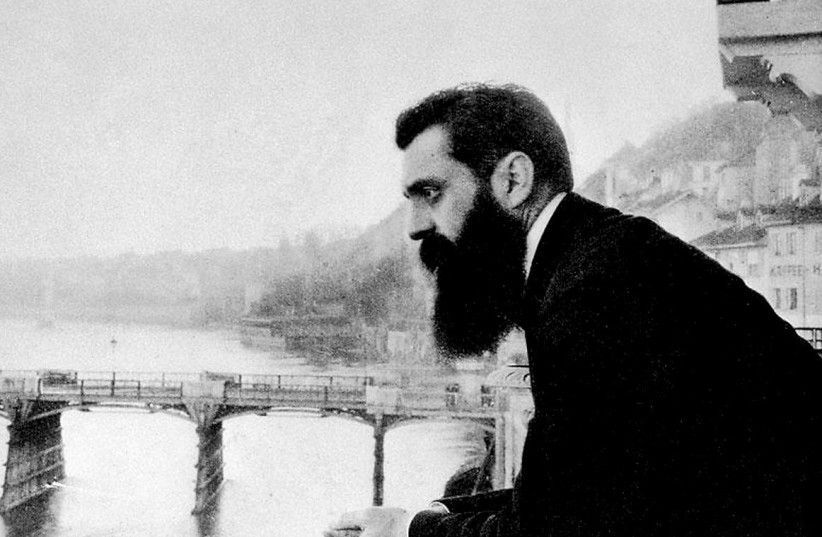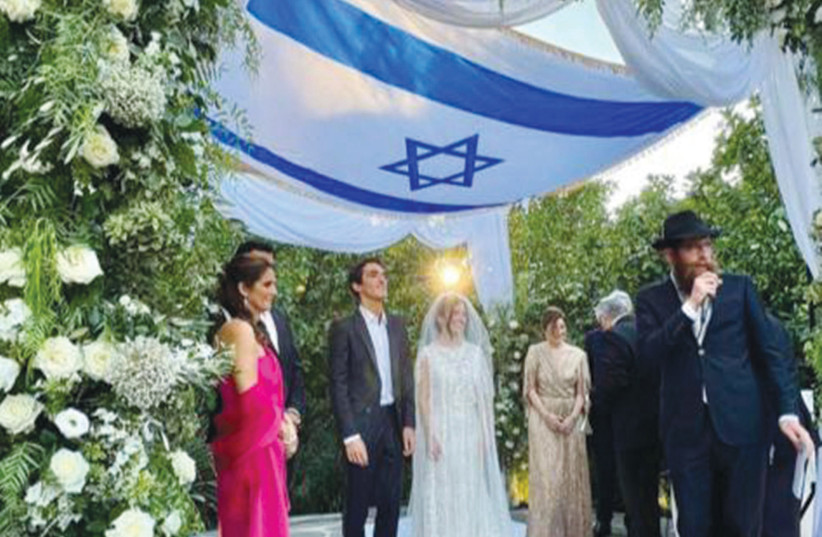When I lived in America and played a rabbi in real life, an average week in my life entailed multiple weddings, funerals, britot, and bar and bat mitzvot. Since moving to Israel and moving into the world of education, I’ve had fewer lifecycle events on my calendar, but this past week was an exception - this week I had three weddings and a funeral.
The three weddings were as diverse as they could be: A haredi couple from America who have moved to Israel, a modern-Orthodox couple from America and Europe who came to Israel just for their wedding, and a more secular couple born and living in Israel whose parents had moved to Israel as college students.
The funeral was for a woman who had dedicated her life to supporting Israel from the United States.
More than just running around Israel, the three weddings and a funeral taught me a great lesson about Israel and Diaspora Zionists.
Diaspora Zionism in the 21st Century is a unique movement. It is based on the same values as Abraham’s 4,000-year-old Zionism and Theodor Herzl’s 150-year-old Zionism, but its goals are very different. While Abraham and Herzl strove to move to the land of Israel and develop a Jewish state within Israel’s borders, Diaspora Zionism in this century is more focused on supporting an already existing Jewish State.

Love of Israel throughout the Jewish generations
Abraham, Herzl, and today’s Diaspora Zionism are all based on the love of Israel. The shared love for the Jewish people’s historic homeland is a bonding agent that can keep Jewish people from around the world united, even during challenging times.
The connection Diaspora Zionists feel toward the land and the modern-day State of Israel is built on a strong sentiment comprising three factors:
Diaspora Zionists recognize that the land of Israel is the historic homeland of the Jewish people, it’s the present center of the Jewish people, and it is the future home of the Jewish people.
While these might seem like basic positions to maintain to some people, they are seismic shifts of beliefs from the Jewish Diaspora’s attitudes just a century ago. When Herzl began his Zionist movement, and for the next 50 years, an overwhelming number of Jews opposed Zionism. It is nothing short of remarkable that Diaspora Jewry shifted its positions so drastically and now maintains these Zionist positions today.
It’s easy for Israeli-born Zionists in Israel to mock Zionists born in the Diaspora, and it happens often. Besides the heavy accents, the language issues, and cultural faux pas of immigrant Zionists, there is the elephant in the room – the passport.
Israelis frequently taunt immigrants about their true commitment to Zionism and Israel, by reminding them that if the going gets tough in Israel, Jews who moved to Israel and still have dual citizenship can always return to their original countries. Differentiating between Israelis, and assuming that immigrants would flee Israel in times of trouble, is wrong and shouldn’t be done.
It’s even more common for Israelis to mock Diaspora Zionists for not living in Israel. Diaspora Zionists’ commitment to Zionism is often called into question by Israelis by arguing that true Zionists answer the call of Israel’s Declaration of Independence: “The State of Israel will be open for Jewish immigration and for the Ingathering of the Exiles; it will foster the development of the country for the benefit of all its inhabitants.”
Israelis will occasionally challenge Diaspora Zionists, asserting that if they were truly committed to the Jewish state, they’d move to Israel.
There is a serious flaw in the arguments and mocking of those who denigrate Jews who moved to Israel, and Zionists who live in the Diaspora. The ancient Zionism of Abraham and the modern Zionism of Herzl didn’t originate in the land of Israel. Abraham’s Zionism began outside of Israel, in today’s Iraq and Syria, and Herzl’s Zionism began in Europe.
Arguably, it wasn’t until the Jewish slaves were emancipated from Egypt, and crossed Jordan with Joshua, that Abraham’s Zionism gained a footing among the Jewish people. The same argument can be made about Herzl, namely, it wasn’t until the surviving Jews of the Holocaust were able to move to Israel that Herzl’s Zionism gained a footing among the Jews of the 20th Century.

Ironically, the Zionist movement has conventionally gained strength outside of Israel. Zionism’s foundation was built on the dream of returning to the land of Israel and never forgetting Israel, a sentiment that is uniquely Diaspora-centered.
The Talmud taught a principle that a person who is commanded to do a mitzvah is greater than one who isn’t commanded to do it. The pressure of fulfilling one’s obligation transforms the act into something greater than originally intended. Diaspora Jews, without the obligation of serving in the IDF or paying Israeli taxes, pay a penalty for the choice of not living in Israel. Their lack of obligations to the State of Israel doesn’t make their Zionism any less than Israeli’s Zionism. Their support of Israel, even when they don’t personally gain from Israel, is impressive and should be praised, never denigrated.
The three weddings and a funeral reflected the love of Israel that Diaspora and Israeli Jews share. Whether they were haredi Jews deciding to make Israel their home; the children of American immigrants, who were born, met, married, and started their lives together here; or the woman from America who dedicated her life to Israel and insisted on being buried here – these events showed me that Diaspora Zionism is strong.
These events taught me the three essential chords of maintaining Israel; it is the Jewish people’s historic homeland, the center of Jewish life today, and the country of its future, which will not easily be torn apart.
As long as Diaspora Jewry continues to answer the last call of Israel’s Declaration of Independence, “We appeal to the Jewish people throughout the Diaspora to rally round the Jews of Eretz-Israel in the tasks of immigration and upbuilding and to stand by them in the great struggle for the realization of the age-old dream – the redemption of Israel,” its Zionism will stand strong.
The writer is a senior educator at numerous educational institutions. He is the author of three books and teaches Torah, Zionism, and Israeli studies around the world.
